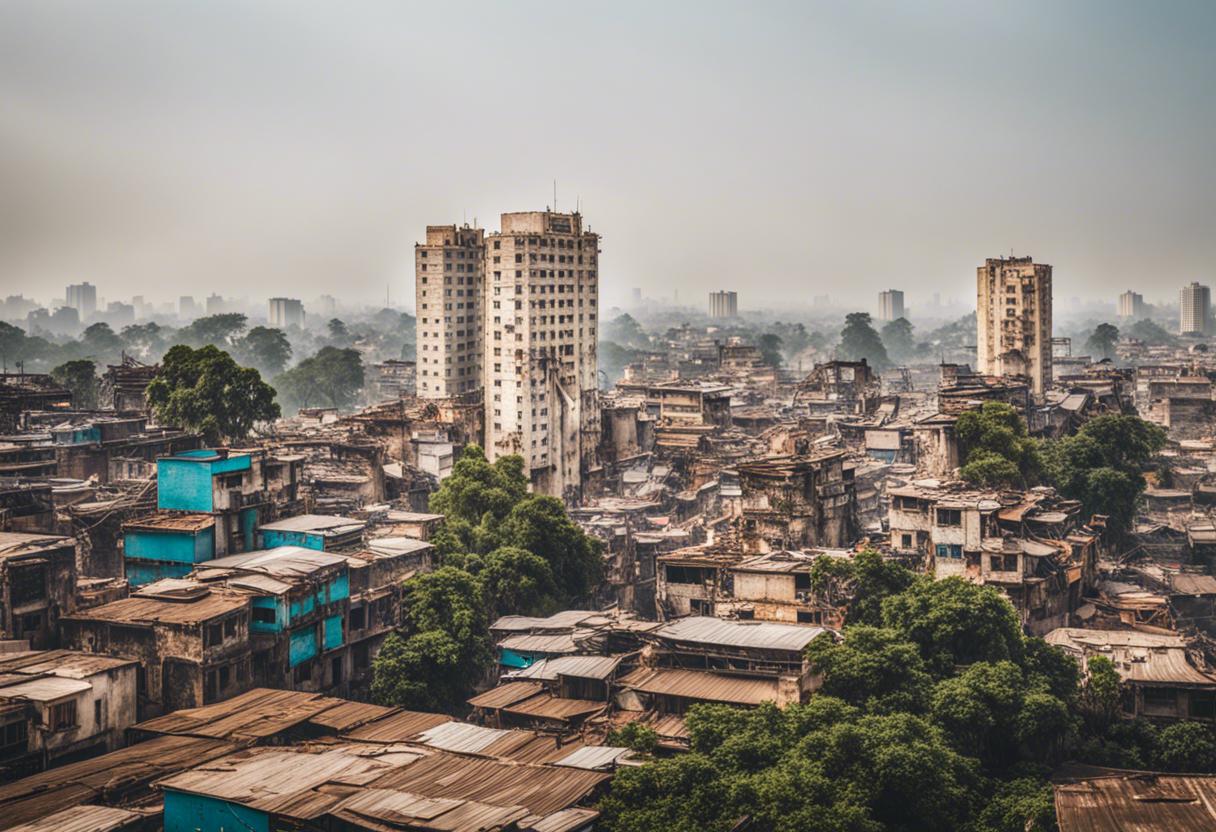Bangladesh’s capital Dhaka was reported to be serene on Monday, following the decision of the Supreme court which dissolved most of the job quotas by the government that had invoked the wrath of student-led activists and ignited fatal demonstrations.
Protesters issued a 48-hour ultimatum to the government on Sunday, with a raft of new demands which incorporated Prime Minister Sheikh Hasina’s public apology for the violent events and the restitution of disrupted internet services due to the disorder.
However, majority respected the imposed curfew in cities that had been frequent hosts of protests ever since a high court in June restored past quotas that catered especially for descendants of freedom fighters and other segments in state jobs.
Official hospital reports indicated 147 fatalities in the rioting, while police spokesperson confirmed a minimum of three police personnel were killed alongside over 1,000 injuries.
Local law enforcement, represented by spokesperson Faruq Hossain, has put under custody at least 516 individuals for participation in “destructive attacks”. As per a government notification, a public holiday which spanned over the preceding two days was extended till Tuesday. The home minister, Asaduzzaman Khan, assured reporters that normalcy would return in a day or two.
Analysts have associated this unrest to flat-lining job expansion in the private sector and escalated younger generation unemployment, making the government jobs that come with regular wage increases and other perks highly desirable.
Prime Minister Hasina, aged 76, sworn in for her fourth consecutive term this year, faces allegations of autocracy, infringing human rights and repressing freedom of speech and dissent- accusations her government denies.
This recent incident of violence mirrors earlier protests on the cusp of this year’s national elections performed by Hasina’s adversaries accusing her of authoritarian rule, and garment workers in protest of better pay in an inflated economy.
This one day was an exception with no violent episodes or protests reported countrywide. Army tanks were strategically positioned in several areas in Dhaka, while fully armed security patrols regulated the few motorists who dared to venture out.
On Sunday, the appellate division of the supreme court passed judgement in favour of the government’s appeal. The bench revoked the majority of quotas and declared that 93% of governmental positions should select candidates based on their merits, reversing the previous decision of the lower court.
Shortly after this decree, the Anti-Discrimination Student Movement came forward with a statement. They requested the government to lift the suspension of academic institutions and terminate restrictions imposed amidst widespread protests. This group even demanded some ministers to resign alongside a few university authorities and for the removal of police officials stationed near student fatalities.
Hasnat Abdullah, a leader of the movement, issued a 48-hour ultimatum to the government to meet their eight-point demand set, but didn’t elaborate on the consequences if the demands went unmet. They await the government’s response which has yet to be given.
Last week, a series of protests resulted in thousands being wounded as security forces retaliated using rubber bullets, sound grenades, and tear gas. Some protest leaders were allegedly taken into custody, including Nahid Islam. He claims he was apprehended early Sunday morning by a group pretending to be police and was subjected to torture to the point of unconsciousness. Upon regaining consciousness, he found himself deserted in the street. These allegations surfaced despite Dhaka police denying his arrest.
While Bangladesh’s economy, which is worth over €380 billion, was previously one of the fastest developing globally, it has since struggled in the aftermath of the Covid-19 pandemic. The war in Ukraine has caused a surge in energy import costs, which in turn dwindled its dollar reserves and stoked inflation. This economic downturn has forced the government to approach the International Monetary Fund for a financial rescue.

